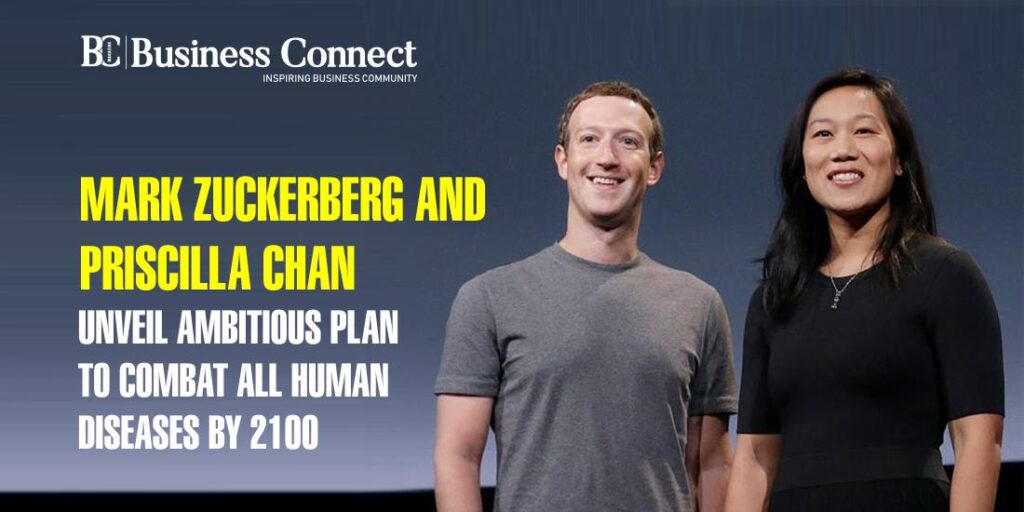Mark Zuckerberg and Priscilla Chan Unveil Ambitious Plan to Combat All Human Diseases by 2100
Written by Sanjay Kumar
In a groundbreaking announcement, Meta CEO Mark Zuckerberg and his wife, Priscilla Chan, have revealed their bold vision to eliminate all human diseases by the year 2100. The Chan Zuckerberg Initiative (CZI), their philanthropic foundation, is spearheading this monumental effort, aiming to harness the power of artificial intelligence (AI) and cutting-edge computing technology to achieve this audacious goal.
A New Era in Biomedicine
The CZI’s ambitious plan involves the development of a state-of-the-art computing system that will work in synergy with AI to meticulously catalog cells and predict their behavior in diseased states. By compiling and analyzing vast amounts of cellular data, researchers hope to make groundbreaking discoveries that could revolutionize the way we approach the treatment and prevention of diseases.
Mark Zuckerberg, Co-founder, and Co-CEO of CZI, emphasized the pivotal role of AI in advancing biomedicine: “AI is creating new opportunities in biomedicine, and building a high-performance computing cluster dedicated to life science research will accelerate progress on important scientific questions about how our cells work.”
Predicting Cellular Behavior
The heart of this initiative lies in developing digital models capable of predicting the behavior of all cell types and states based on genetic information. This predictive capability will provide researchers with invaluable insights into the inner workings of our cells, both in health and disease.
Mark Zuckerberg elaborated, “Developing digital models capable of predicting all cell types and cell states from the genome will help researchers better understand our cells and how they behave in health and disease.”
The Power of Generative AI
The CZI’s mission is to provide researchers with access to generative AI tools, allowing them to study healthy and diseased cells in unprecedented detail. This approach is akin to running a “virtual cell” through various simulations, enabling scientists to anticipate and explore cellular responses to diseases and medications.
Priscilla Chan, co-founder of CZI, underscored the potential of AI in medical research: “AI models could predict how an immune cell responds to an infection, what happens at the cellular level when a child is born with a rare disease, or even how a patient’s body will respond to a new medication.”
Collaborative Effort for Scientific Breakthroughs
The foundation’s vision is built on collaboration and open access to data. The newly developed system will be trained using datasets from CZI’s software tool, CZ Cell x Gene, as well as resources from the Chan Zuckerberg Biohub Network and Chan Zuckerberg Institute for Advanced Biological Imaging, along with publicly available data. Once completed, this computing system is set to become one of the largest AI clusters dedicated to nonprofit research.
The Chan Zuckerberg Initiative’s audacious goal to combat all human diseases by 2100 has the potential to revolutionize the field of biomedicine, leveraging the power of AI, data, and collaboration to bring us closer to a disease-free world. As the project unfolds, it holds the promise of reshaping the future of healthcare and unlocking unprecedented insights into the fundamental workings of our cells.
Must Read:-
- Stock Market Update
- Top 10 shoe brands in India for men & women 2023
- Top 10 Adorable Gifts for Your Special One
- Top 10 Countries with Maximum Indian Population as Citizens
- Top 10 Small Business Statistics You Need to Know For 2023
- Top 10 highest-paid CEO in the World
- Top 10 richest person of India
- Top 10 Highest-Paid CEOs of India
- Top 10 Most Selling Bikes and Scooters of 2022 in India
- The Success Story of Jeff Bezos
- Success Story Of Elon Musk
- Top 10 Business Newspaper In India



